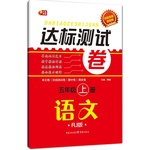题目内容
Did you ever wonder how some of your favorite foods, products or toys came about? Believe it or not, they may have been an accident, or a failure of some other intention. Below, we found three mistakes we’re thankful for turned out to be what they are.
1. Most historians hold that the Chinese invented fireworks in the 9th century when they
discovered how to make gunpowder. Story has it that a Chinese cook accidentally mixed together what were then considered common kitchen items and noticed they burnt. When put tightly in a bamboo tube and lit, it blew up.
2. In May of 1886, a law led John Pemberton, a pharmacist(药剂师), to rewrite the formula(配方) for "Pemberton’s French Wine Coca,” his popular headache treatment. Containing sugar instead of wine as a sweetener, the outcome became something for Coke, which was later mixed with carbonated water. His bookkeeper suggested the name Coca-Cola because he thought the two C’s would look good together, which is how what we call Coca-Cola, a world –wide drink came into being.
3. During World War II, scientists at the University of Birmingham invented the magnetron—an important heat-producing part of the microwave oven(微波炉). While working for Raytheon Corporation after the war, the American engineer Percy Spencer was testing the magnetron when a chocolate bar in his pocket melted. He went on to test other foods including popcorn kernels, and found it to be a much more efficient way to cook. In 1947 Raytheon came out with the first restaurant microwave oven, which was six feet tall and weighed 750 lbs.
1.The right time order of the three inventions, according to the passage, should be_________.
A. fireworks, the microwave and Coca-Cola
B. fireworks ,Coca-Cola and the microwave
C. Coca-Cola , fireworks and the microwave
D. the microwave, Coca-Cola and fireworks
2.Percy Spencer found the microwave efficient in cooking when he was _______.
A. looking for a way to melt his chocolate
B. trying to know how a magnetron could cook
C. working to know how the magnetron works
D. asked to invent a restaurant microwave oven
3.What can we learn from the above invention stories?
A. Experiments make great inventors of our time.
B. Nothing is impossible if one tries each day.
C. Inventors come out of hard work at any time.
D. A small incident may lead to a great invention.
4.What’s the best title for the passage?
A. What great inventions they are! B. Inventions from Three Countries.
C. Stories of Accidental Inventions. D. The Human Inventions of time.
1.B
2.C
3.D
4.C
【解析】略

 星级口算天天练系列答案
星级口算天天练系列答案 芒果教辅达标测试卷系列答案
芒果教辅达标测试卷系列答案Did you ever look up at the moon and think you saw a man’s face there? When the moon is round and full, the shadows(影子) of the moon mountains and the lines of the moon valleys sometimes seem to show a giant nose and mouth and eyes. At least, some people think so.
If there were a man on the moon—instead of mountains and valleys that just look like the face of a man—what would he be like?
He would not be like anyone you know. He would not be like anyone anybody knows.
If the man on the moon were bothered by too much heat or cold the way Earth people are, he could not stay on the moon.
The moon becomes very, very hot. It becomes as hot as boiling water. And the moon becomes very, very cold. It becomes colder than ice.
Whatever part of the moon the sun shines on is hot and bright. The rest of the moon is cold and dark.
If the man on the moon had to breathe to stay alive, he couldn’t live on the moon because there’s no air there. He’d have to carry an oxygen tank, as astronauts do. There’s no food on the moon, either. Nothing grows—not even weeds(grass).
If the man on the moon liked to climb mountains, he would be very happy. There are many high places there, such as the raised land around the holes, or craters(火山口), of the moon. Some of these rims are as tall as Earth’s highest mountains.
But if the man on the moon liked to swim, he would be unhappy. There is no water on the moon—just dust and rock.
When you think of what it’s like on the moon, you may wonder why it interests our scientists. One reason is that the moon is Earth’s nearest neighbor—it is the easiest place in space to get to.
Going back and forth between the moon and Earth, astronauts will get a lot of practice in space travel. Things learned on moon trips will be of great help to astronauts who later take long, long trips to some of the planets.
Scientists are also interested in the moon because it has no air. The air that surrounds Earth cuts down the view of the scientists who look at the stars through telescopes. A telescope on the moon would give them a clearer, closer view of the stars.(words: 411)
【小题1】What is the reason why our scientists are interested in the moon.?
| A.The moon is beautiful. |
| B.The moon is different from the earth. |
| C.The moon is Earth’s nearest neighbor—it is the easiest place in space to get to. |
| D.The moon is the easiest place in space to get to and it has no air, unlike Earth. |
| A.ball | B.hill | C.round edge | D.height |
| A.We can learn much from research on the Moon. |
| B.There may be human beings on the moon. |
| C.If there were a man on the Moon, there would be many similarities between the man on the Moon and on the Earth. |
| D.A telescope on the Moon would help scientists have a clearer, closer sight of the stars. |
Although English is not as old as Chinese , it is spoken by many people around the world every day. English speakers are always creating new words and we are often able to know where most words come from.
Sometimes, however, no one may really know where a word comes from. Did you ever think about why hamburgers are called hamburgers, especially when they are not made with ham? About a hundred years ago, some men went to America from Europe. They came from a big city in Germany called Hamburg. They didn’t speak good English, but they ate good food. When some Americans saw them eating round piece of beef, they asked the Germans what it was. The Germans didn’t understand the question and answered, “We come from Hamburg.” One of these Americans owned a restaurant, and had an idea. He cooked some round piece of bread and started selling them. Such bread came to be called “hamburgers”. Today, “hamburgers” are sold in many countries around the world.
Whether this story is true or not, it certainly is interesting. Knowing why any word has a certain meaning is interesting, too. This reason, for most English words, can be found in any large English dictionary.
【小题1】Hamburg is ____________
| A.a kind of food | B.a round piece of beef |
| C.the name of a village | D.a city in Germany |
| A.few Americans like hamburgers |
| B.hamburgers are made with beef |
| C.hamburgers are made with ham |
| D.hamburgers were first sold about a century ago |
| A.Where all the new words come from. |
| B.Where those Germans came from. |
| C.The reason why a word has a certain meaning. |
| D.The reason why English is spoken around the world. |
| A.China because it has a long history |
| B.English because Germans don’t speak good English |
| C.The round piece of beef which those people from Hamburg were eating |
| D.English speakers because they always create new words |